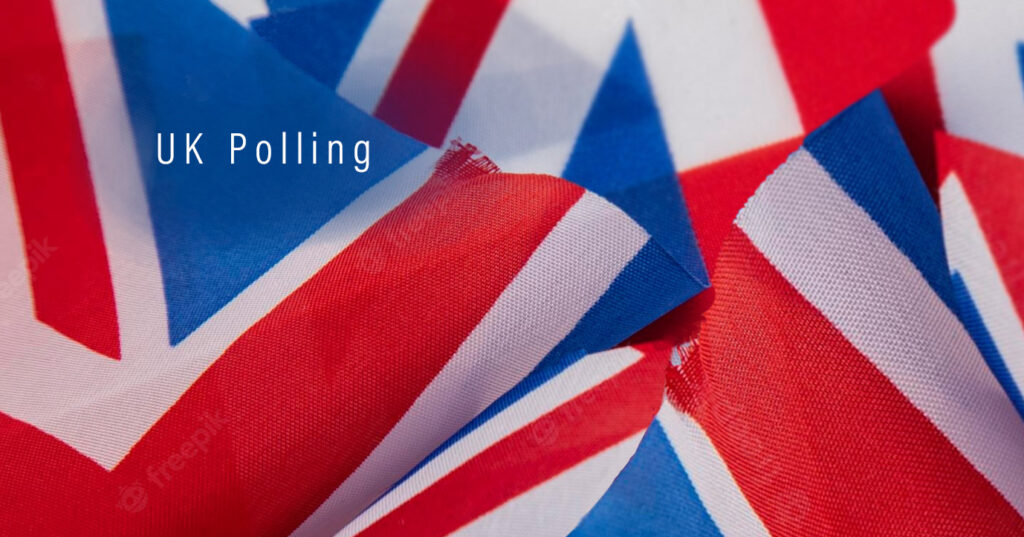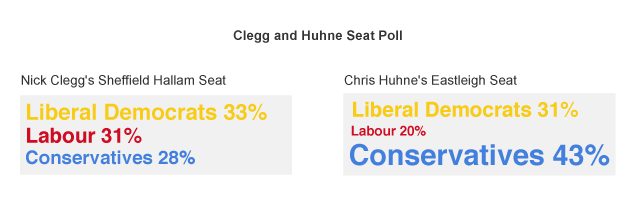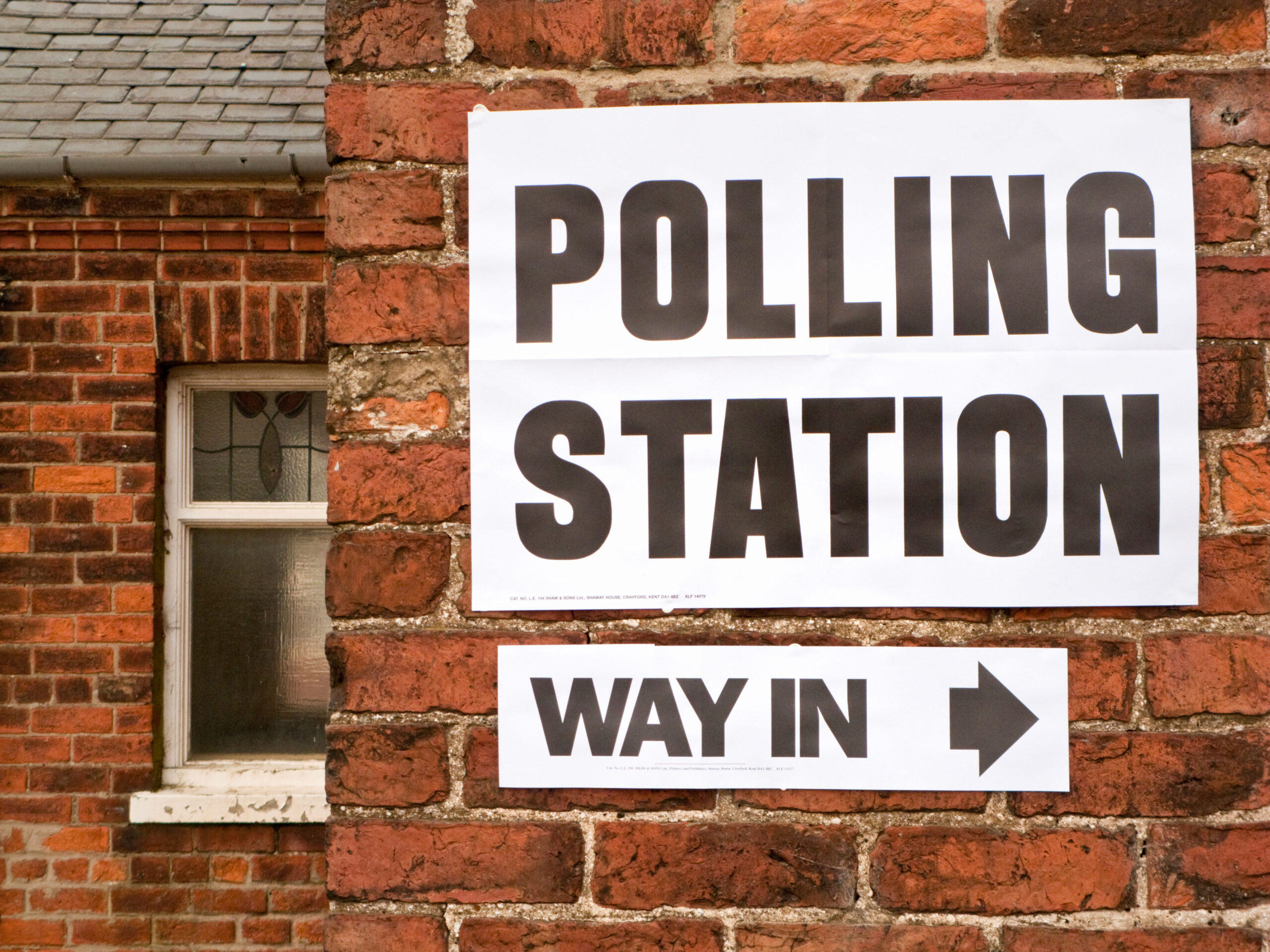
Though the Liberal Democrats achieved 24% of the vote in Great Britain at the general election, no poll since late June has put Nick Clegg’s party above 18%. Some have put them at less than half of their 6 May vote share. In July I published research conducted in marginal constituencies showing that 30 of the Lib Dems’ 57 seats were vulnerable to the Conservatives. More recently I have looked into whether the apparent meltdown would have the same effect on senior Liberal Democrats in the coalition. The answer is that their prominence has not made them immune from the decline in support for their party.
According to my research at the beginning of this month, in an election tomorrow Nick Clegg would hold onto his Sheffield Hallam seat by the skin of his teeth, with 33% to Labour’s 31%, and the Conservatives on 28% – a swing of 17.5% to Labour. And in Eastleigh, according to a poll I conducted in August, Chris Huhne would be comfortably trounced by the Conservatives, 43% to 31%, with Labour doubling their vote share to 20% – a swing of 10% to the Tories and 13% to Labour.

These swings are if anything worse than those implied by even the most pessimistic national polls for the Lib Dems. Yesterday’s YouGov poll (Con 41%, Labour 40%, Lib Dems 11%) represents an 8.5% swing to the Conservatives from their coalition partners since the election, and an 11.5% swing to Labour.
These headline figures do not tell the full story. Liberal Democrat MPs often enjoy a significant local following that is not always reflected in polls asking the standard voting intention question: “if there were a general election tomorrow, which party would you vote for?” Research in marginal seats by Politics Home in August 2008 and September 2009, for example, found a significant boost for the Lib Dems in the follow-up question “And thinking specifically about your own constituency and the candidates who are likely to stand there which party’s candidate do you think you will vote for in your own constituency at the next general election?”
There is some comfort for our two coalition ministers on this score. When we asked voters of Sheffield Hallam and Eastleigh what they would have done “had you known on the day of the election that the Liberal Democrats would enter a coalition with the Conservative Party”, the findings indicate that both Clegg and Huhne would still have been returned. This question named the candidates, reminding them of their long serving local MPs. Taken as a whole, recent polling suggests that in future elections, cultivating a local following will be an even more important part of the Liberal Democrats’ strategy than it has been to date.


